From what I've read this place sucks and what else could anyone expect from the govt. If anyone really wants change and help there is Jesus Christ and that will work if the person seeking help is really serious. I've lived with family addicts my whole life and these treatm ...
About KeyStone Center
During your time in inpatient care you will participate in both individual therapy and group therapy. What makes this so beneficial is the ability to discuss personal and private concerns, issues and challenges and receiving one on one treatment. This encourages you to be more vocal about your needs, advocate for yourself and learn coping skills to help you heal. This also helps you face life as it comes. While receiving care here, they will provide you the tools you need to help you move forward.
Group therapy gives you an opportunity to connect with others and also develop social skills. This helps change the way you interact with others and helps you learn communication skills. Group therapy offers that extra support and accountability with other peers while you help motivate one another.
They also offer holistic approaches to treatment that you can do on your own, like yoga. Yoga boosts your mood, reduces stress and helps with pain management. Yoga improves your mental health and encourages self care. This can help keep the focus on you and your recovery and help you manage your emotions.
While you are receiving treatment here they also discuss high risk situation/management HIV and STD education. Gaining more knowledge and education on addiction and life challenges can change your wellbeing drastically. By receiving education on prevention and also handling unpredictable scenarios, you’ll be better equipped to manage difficult situations. They also provide resources and linkage to care that you may need on your journey.
Facility Overview
Latest Reviews
Rehab Score
Gallery
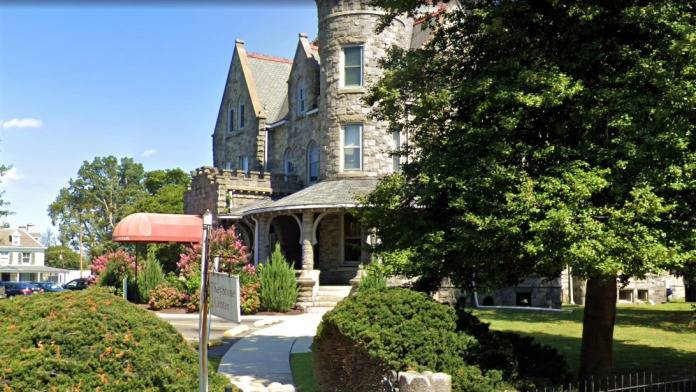
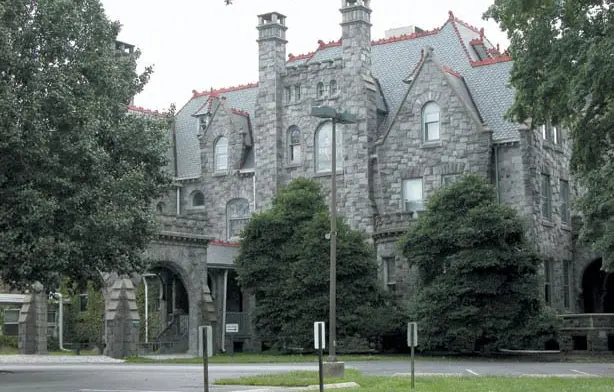
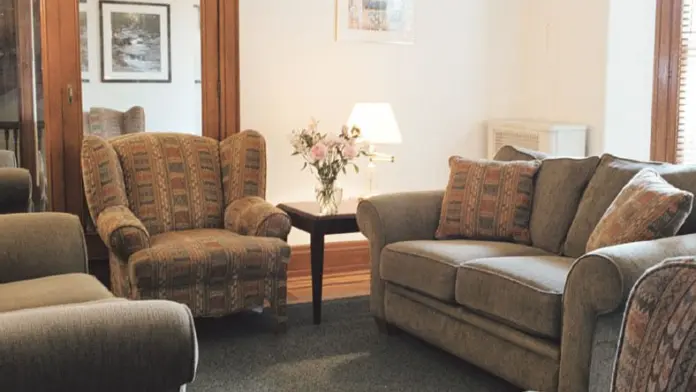
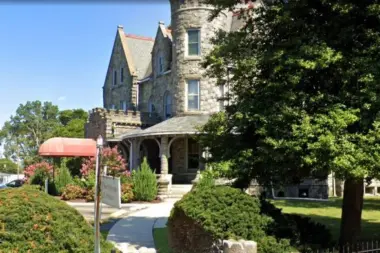

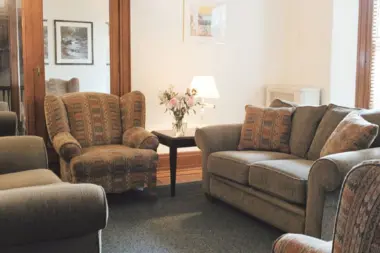
Accepted Insurance
Other Forms of Payment
Private insurance refers to any kind of healthcare coverage that isn't from the state or federal government. This includes individual and family plans offered by an employer or purchased from the Insurance Marketplace. Every plan will have different requirements and out of pocket costs so be sure to get the full details before you start treatment.
Self-pay involves paying for treatment out of your own pocket. You can use savings or credit, get a personal loan, or receive help from family and friends to fund your treatment. If you don't have insurance or your insurance plan doesn't cover a specific program, self-pay can help ensure you still get the care you need.
Medicaid is a state based program that helps lower-income individuals and families pay for healthcare. Medicaid covers addiction treatment so those enrolled can use their coverage to pay for rehab. When a program accepts Medicaid the client often pays very little or nothing out of their own pocket.
Addiction Treatments
Levels of Care
Outpatient rehabs specialize in providing comprehensive care for clients who choose to remain in their homes and communities during treatment. Their services may include transitional support for clients stepping down from intensive inpatient programming. Ambulatory medical detox may be provided for clients at low risk for withdrawal complications. Many programs include evening, night, and weekend services to accommodate clients who are working professionals or caregivers. Addiction counseling and life skills training are common treatment modalities.
Residential treatment programs are those that offer housing and meals in addition to substance abuse treatment. Rehab facilities that offer residential treatment allow patients to focus solely on recovery, in an environment totally separate from their lives. Some rehab centers specialize in short-term residential treatment (a few days to a week or two), while others solely provide treatment on a long-term basis (several weeks to months). Some offer both, and tailor treatment to the patient's individual requirements.
Clients engaged in intensive outpatient programs (IOP) live and work in their home community while receiving frequent, high-level care. These programs offer personalized care designed to evolve with the clients' changing needs. Many intensive outpatient rehabs require a minimum of nine hours of treatment per week, but high-risk clients and those in early recovery may receive up to 20 hours of care weekly. IOP services generally include addiction counseling, recovery education, and holistic therapies, such as massage.
12-step programs are addiction recovery models based on Alcoholics Anonymous (AA). A number of substance abuse programs (including some drug and alcohol rehab centers) use the 12 steps as a basis for treatment. Beginning steps involve admitting powerlessness over the addiction and creating a spiritual basis for recovery. Middle steps including making direct amends to those who've been hurt by the addiction, and the final step is to assist others in addiction recovery in the same way. 12-Step offshoots including Narcotics Anonymous (NA), Cocaine Anonymous (CA), Dual Recovery Anonymous (DRA), Sex and Love Addicts Anonymous (SLAA) and Gamblers Anonymous (GA).
Intervention services bring extensive experience to the planning and conducting of drug interventions in Pennsylvania. These experts can facilitate interventions in a sensitive manner that encourages positive outcomes. The goal of the intervention is to educate the individual about addiction and the consequences of their substance use and encourage them to get the treatment they need. Interventions can be effective with all types of drugs and alcohol addiction.
At certain points in the recovery process, it's important to have support available 24/7. 24-hour clinical care offers a safe environment in which to recover from drug or alcohol addiction in peace, knowing medical detox and other treatment will happen with professionals on hand.
Drug and alcohol addiction often takes a heavy toll on one’s body. Over time, a physical dependence can develop, meaning the body physiologically needs the substance to function. Detox is the process of removing drugs and/or alcohol from the body, a process that can be lethal if mismanaged. Medical detox is done by licensed medical professionals who monitor vital signs and keep you safe, healthy, and as comfortable as possible as you go through detox and withdrawal.
Treatments
The goal of treatment for alcoholism is abstinence. Those with poor social support, poor motivation, or psychiatric disorders tend to relapse within a few years of treatment. For these people, success is measured by longer periods of abstinence, reduced use of alcohol, better health, and improved social functioning. Recovery and Maintenance are usually based on 12 step programs and AA meetings.
Drug rehab in Pennsylvania is devoted to the treatment of addiction. Levels of care, treatment methods, and settings differ, but the aim of each program is to end drug dependency and empower participants to achieve long-term recovery.
Many of those suffering from addiction also suffer from mental or emotional illnesses like schizophrenia, bipolar disorder, depression, or anxiety disorders. Rehab and other substance abuse facilities treating those with a dual diagnosis or co-occurring disorder administer psychiatric treatment to address the person's mental health issue in addition to drug and alcohol rehabilitation.
Opioid rehabs specialize in supporting those recovering from opioid addiction. They treat those suffering from addiction to illegal opioids like heroin, as well as prescription drugs like oxycodone. These centers typically combine both physical as well as mental and emotional support to help stop addiction. Physical support often includes medical detox and subsequent medical support (including medication), and mental support includes in-depth therapy to address the underlying causes of addiction.
Substance rehabs focus on helping individuals recover from substance abuse, including alcohol and drug addiction (both illegal and prescription drugs). They often include the opportunity to engage in both individual as well as group therapy.
Programs
Adult rehab programs include therapies tailored to each client's specific needs, goals, and recovery progress. They are tailored to the specific challenges adult clients may face, including family and work pressures and commitments. From inpatient and residential treatment to various levels of outpatient services, there are many options available. Some facilities also help adults work through co-occurring conditions, like anxiety, that can accompany addiction.
Young adulthood can be an exciting, yet difficult, time of transition. Individuals in their late teens to mid-20s face unique stressors related to school, jobs, families, and social circles, which can lead to a rise in substance use. Rehab centers with dedicated young adult programs will include activities and amenities that cater to this age group, with an emphasis on specialized counseling, peer socialization, and ongoing aftercare.
Recovery is most successful when clients feel accepted and validated by their peers and treatment providers. Facilities that offer LGBTQ-inclusive programming are committed to creating a safe space where everyone can grow and recover without fear of judgment or discrimination. They will have dedicated policies in place to create a safe and supportive environment that fosters free expression.
Clinical Services
CBT is based on the theory that learning processes play a critical role in the development of unhealthy patterns linked with mental health and substance abuse problems. It is used to help clients identify and correct problematic or destructive behaviors by applying a variety of different coping/relapse prevention skills, and evaluate and change unhelpful or self-defeating thought processes that are negatively influencing a client’s emotions or behaviors. CBT consists of a collection of methods intended to enhance a person’s self-control. Specific techniques include exploring the positive and negative consequences of self-defeating thinking or using drugs and alcohol, self-monitoring to recognize drug cravings early on and to identify high-risk situations for use, and developing strategies for coping with and avoiding high-risk situations and the desire to use.
Dialectical Behavior Therapy (DBT) is a modified form of Cognitive Behavioral Therapy (CBT), a treatment designed to help people understand and ultimately affect the relationship between their thoughts, feelings, and behaviors. DBT is often used for individuals who struggle with self-harm behaviors, such as self-mutilation (cutting) and suicidal thoughts, urges, or attempts. It has been proven clinically effective for those who struggle with out-of-control emotions and mental health illnesses like Borderline Personality Disorder.
Experiential therapy is a form of therapy in which clients are encouraged to surface and work through subconscious issues by engaging in real-time experiences. Experiential therapy departs from traditional talk therapy by involving the body, and having clients engage in activities, movements, and physical and emotional expression. This can involve role-play or using props (which can include other people). Experiential therapy can help people process trauma, memories, and emotion quickly, deeply, and in a lasting fashion, leading to substantial and impactful healing.
Addiction does not operate in a vacuum. It is a problem that very much impacts not only the addict but also anyone who cares about the addict. It is important, therefore, to treat not only the addict but the entire family. KeyStone Center’s Family Therapy Program offers patients and their families a chance to work on family issues while the client is in treatment. Family members are given an opportunity to discuss how the addiction has impacted the family and issues that may have been “swept under the rug” are brought out and clarified. Patients are offered support before, during, and after the family sessions by means of group and individual therapy.
In individual therapy, a patient meets one-on-one with a trained psychologist or counselor. Therapy is a pivotal part of effective substance abuse treatment, as it often covers root causes of addiction, including challenges faced by the patient in their social, family, and work/school life.
Motivational Interviewing is a person-centered, collaborative, form of guiding to elicit strategies for change, by helping people explore their ambivalence toward dealing with problems and resolving this uncertainty. Motivational interviewing acknowledges and accepts the fact that people who need to make changes in their lives approach counseling at different levels of readiness of change. It provides a non-judgmental and non-confrontational approach used to increase a person’s awareness of a problem’s cause, its risks, and its impact on their lives.
Amenities
-
Gym
-
Yoga Studio
-
Private Rooms
Staff & Accreditations
Staff
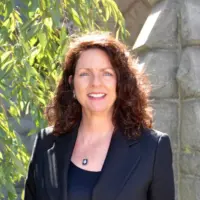
Elizabeth Conlin, PsyD
Chief Operating Officer

Al Coppola
Chief Financial Officer

Cari Pelc, MA
Director of Admissions

Amanda Lafferty, LPN
Director of Utilization Review

Badia Brown, MSN, RN
Director of Nursing
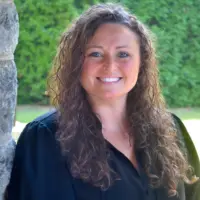
Candis Breen, MA, LPC, ATR-BC
Director of Quality Assurance and Programming

Jeff Grazier, MHS-C, MBA
Director of Clinical Services

Jennifer East
Director of Business Development
Accreditations

The Joint Commission, formerly known as JCAHO, is a nonprofit organization that accredits rehab organizations and programs. Founded in 1951, the Joint Commision's mission is to improve the quality of patient care and demonstrating the quality of patient care.
Joint Commission Accreditation: Yes
Contact Information
2001 Providence Avenue
Chester, PA 19013




